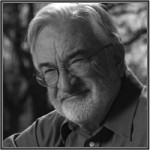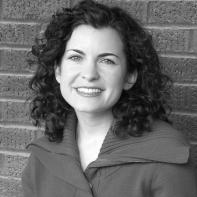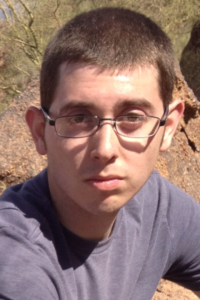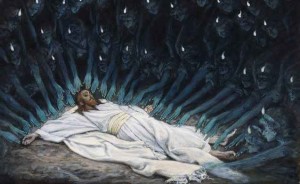 Most of us would be lost, wandering around aimlessly, without signs. Enter, exit. Push, pull. Take a ticket. Some people who know me might say I am an inflexible rule follower with no sense of adventure or humor, but I have a wild streak. For example, I walked up to the convenience store and considered the sign: No Shirt, No Shoes, No Service. So I took off my shirt and spray painted my upper torso black but the cashier threw me out despite my protests. What constitutes clothes? Must they be made of cloth? I mentioned that Lady Gaga wore a gown made of raw meat. My argument was shown to the curb, so I rapped on the glass door until another minimum wage attendant shuffled out and I inquired if flip flops and tank tops were acceptable. He shrugged, not seeming to have a problem with that wardrobe choice, so I went home to put on some real clothes, came back and bought my energy drink, two unlucky lottery tickets and read the front page of the scandal sheet while standing in line, which technically is probably illegal, since I wasn’t going to buy it, but what are they going to do? They can’t make what’s in your mind or what you see illegal, can they? Technically it’s probably stealing but is it really? Plus, there’s no rule (or even a sign) that states that your eyes must remain forward while waiting for the cashier to make change. Some women have eyes in back of their heads, but I don’t want to go down that road. Also, because of this digital age, part time cashiers are terrible at basic arithmetic and fewer and fewer can even make proper change in their heads. My bill was $7.43 with tax so I gave the girl a ten-spot and three singles and she acted flummoxed, horrified and said I had given her too much money. She seemed angry with my explanation that I just wanted a crisp five dollar bill and a few coins as though that was somehow more taxing for her brain. She reached under the counter for a calculator and freaked out when she discovered the batteries were dead. I hate to have singles crowd and clutter up my life and wallet. Plus, I am an active political advocate for abolishing the penny. Ironically we should all stash our pennies till they become obsolete and then they will be worth something but if everyone does it they will continue to have no real value. Life is filled with such ironies and paradoxes.
Most of us would be lost, wandering around aimlessly, without signs. Enter, exit. Push, pull. Take a ticket. Some people who know me might say I am an inflexible rule follower with no sense of adventure or humor, but I have a wild streak. For example, I walked up to the convenience store and considered the sign: No Shirt, No Shoes, No Service. So I took off my shirt and spray painted my upper torso black but the cashier threw me out despite my protests. What constitutes clothes? Must they be made of cloth? I mentioned that Lady Gaga wore a gown made of raw meat. My argument was shown to the curb, so I rapped on the glass door until another minimum wage attendant shuffled out and I inquired if flip flops and tank tops were acceptable. He shrugged, not seeming to have a problem with that wardrobe choice, so I went home to put on some real clothes, came back and bought my energy drink, two unlucky lottery tickets and read the front page of the scandal sheet while standing in line, which technically is probably illegal, since I wasn’t going to buy it, but what are they going to do? They can’t make what’s in your mind or what you see illegal, can they? Technically it’s probably stealing but is it really? Plus, there’s no rule (or even a sign) that states that your eyes must remain forward while waiting for the cashier to make change. Some women have eyes in back of their heads, but I don’t want to go down that road. Also, because of this digital age, part time cashiers are terrible at basic arithmetic and fewer and fewer can even make proper change in their heads. My bill was $7.43 with tax so I gave the girl a ten-spot and three singles and she acted flummoxed, horrified and said I had given her too much money. She seemed angry with my explanation that I just wanted a crisp five dollar bill and a few coins as though that was somehow more taxing for her brain. She reached under the counter for a calculator and freaked out when she discovered the batteries were dead. I hate to have singles crowd and clutter up my life and wallet. Plus, I am an active political advocate for abolishing the penny. Ironically we should all stash our pennies till they become obsolete and then they will be worth something but if everyone does it they will continue to have no real value. Life is filled with such ironies and paradoxes.
I am the last person in America to not have automatic deposit or an ATM card, at least that what my friends say, not my real friends. My real friends know who I am and don’t judge. The idea of paying bills online is so beyond me I believe more in the feasibility of time machines or the lost continent of Atlantis. Besides, I like going to the Post Office and picking out the various specialty stamps. I especially love the jazz musicians and famous poets and baseball legends. Every other Thursday, when I get my paycheck, I drive over to the bank. Often I am the only customer in line. I remember back in the good old days there would be long lines on Thursdays and it was almost impossible to find a parking spot and people would grow impatient and eat their lunches while fidgeting in line but now the tellers look bored and are more friendly, welcoming the few patrons who actually come into the bank and they know each of us by our first names. There is a sign on the door that I believe is not so subtlety directed at would-be bank robbers that I don’t remember verbatim but the gist of it is that it’s against bank policy to wear masks, hoods, sunglasses or anything that covers your face when entering the bank. Footnote: when a man walks into the bank wearing a Ninja Turtle mask it’s a safe assumption that he also is carrying a gun unless it’s Halloween and he has fake nun chucks. It says it’s for the safety and comfort of all patrons but everyone knows the deal. Plus, there are cameras all over. Nothing is secret in America anymore. You can’t get away with anything. You can even get speeding tickets when there are no cops around. They put microchips under babies skin the instant they are born and the government, of course, can trace are whereabouts by our cell phones. Some convenience stores have signs over the lottery tickets that say the premises are under recorded surveillance but I don’t believe it. I think the sign is just for show. Fake cameras with no film. Scare tactics so you don’t stick-up the joint. And out of human compassion, they offer an 800 number to call if you think you have a gambling problem. So, in summer I put on more clothes for the convenience store and in winter I take off my warm head and facial gear to cash my checks. I love how the world dictates how I should dress. It’s nice that there are dress codes that are designed, in essence, to protect us from harm and health hazards and signs everywhere, when to slow down, when to inform us deaf children are at play, when to beware of dogs, when the seedy hotel, indeed, has a vacancy.
The fancy-schmancy restaurants dictate that I wear the appropriate attire and in the olden days they had spare crass sport jackets for men who came ill suited (get it) for dinner. I went out to a restaurant for my birthday, not my real birthday but my family birthday, and printed in bold letters on the menu was a directive that I should tell my server if I had any peanut allergies. I was curious why it was linguistically phrased as though one could have more than one peanut allergy. I called the waitress over and excused myself but said shouldn’t the menu say “a” peanut allergy because I was confused how a person could have more than one peanut allergy and she asked if I was telling her that I had a peanut allergy and I told her I didn’t, that it was a grammar, not a peanut, issue. When I was a kid, no one used to have peanut allergies but now it’s swelled to epidemic proportions. And every other person must be Glutton Free. What happened? A sore leg is now a stress fracture and being lazy and disinterested is an Attention Deficit Disorder. There used to be no such thing as anxiety or depression; you were just blue, down in the dumps. There must be something to this modernization of naming things. In fact, it’s poetic, as poetry was originally “the naming of things”. I learned that from my poetry teacher way back. Our society is becoming more poetic. Yeah! So the waitress blinked multiple times, overly dramatic, as though she wanted her eyelashes to inform me I was being a dope. She told our table she’d be back to take our drink orders in a minute. It’s nice that they don’t want folks unknowingly consuming stuff that would make their throats swell, turn their faces bright red and make them gasp for oxygen during their meals but what if you don’t know about your peanut allergy until you consume peanuts in their restaurant. So much in life is nobody’s fault. I won’t even go into the fact that for some reason, on the back page, it says I should tell my server if I am lactose intolerant or to inform the manager if I require special service. I always want special service; that’s the idea. At the finer restaurants the servers don’t wear name tags. I guess they figure you don’t care about the plebian’s name or that the patrons are smart enough to remember the server’s name when they introduce themselves. On the drive home, I notice there are no more stationary billboards only electronic gizmos that change their messages every twenty seconds and traffic signs that alert us on the highway about delays and accidents and there are Amber alerts for kidnapped children. I want to know less, not more. That’s what I want.
When I was a kid, not that I believed in God or anything, but churches were serious places, no sense of humor or fucking around. Now the clergy try to be clever, comedic in a way that might guilt you into attending services with signs like: “I don’t know why some people change churches; what difference does it make which one you stay home from?” or “There are some questions that can’t be answered by Google,” or my favorite slogan, cloaked in Anti-Semitism: “Christmas: easier to spell than Hanukkah.” I guess all the clergymen got together at some convention when they experienced a major drop-off in church goers and said we need a new strategic plan, a marketing brand. Comedy works and maybe we should be more inclusive while we’re at it. Nah, just kidding…I wonder if the banks will succumb to comedy to make would-be robber chuckle and decide not the stick-up the joint. Smile: You’re on Candid Camera; We Can Use This Same Photo for Your Mug Shot! People don’t take things seriously enough anymore, but then again we don’t really have stuff like the Black Plague and Leprosy and Concentration Camps but in their stead we do have unstable, unemployed college drop-outs who live in their parents’ basements and gun down children and entire populations without clean drinking water and a world that makes it illegal for people who love each other to be legally married. And let’s not forget suicide bombers and doomsday anti-government preppers. Maybe they know something.
I love those stories of love letters written by a lovesick teenage draftee in a foxhole during a war that never reached the intended person and shows up half a century later, having been accumulating dust in some dead letter bin. The Post Office makes a valiant effort to deliver it, news station cover the event, cameras galore, but alas, the woman is usually long dead and the story evolves into the fantasy of unrequited romanticism. We want to believe such rare love still exists. We want to believe the written word has that power over us. The woman leaves for a short errand and never returns to her Paris apartment so the mail carrier returns the next day with the letter to nobody home and a half century latter some great granddaughter inherits the dusty, untouched farm house and enters it and finds a primitive Van Gogh and handmade toys from Germany and first editions of the Great Russian novelists. On the door was a hastily scribbled sign: “Back in an hour”. I guess the ultimate sign is that which one wants etched on his gravestone. My poetry teacher, on his deathbed, whispered to me what he wanted: Never Mind. I guess that sums up life with an exclamation point and makes people realize you can develop a sense of humor even after you’re dead.








